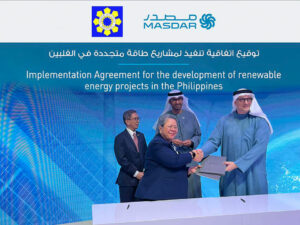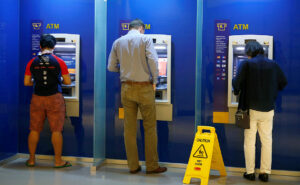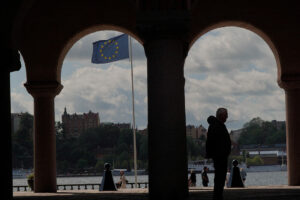By Sheldeen Joy Talavera, Reporter
MASDAR, a state-owned renewable energy firm in the United Arab Emirates (UAE), is planning to invest around $15 billion (approximately P878 billion) in renewable energy (RE) projects in the Philippines.
The Department of Energy (DoE) on Wednesday signed an implementation agreement with Masdar to develop up to one gigawatt (GW) of solar, wind, and battery energy storage systems (BESS) in the country by 2030, with the goal of scaling this up to 10 GW within a decade.
The agreement was signed by Energy Undersecretary Rowena Cristina L. Guevara and Masdar Chief Executive Officer Mohamed Jameel Al Ramahi during Abu Dhabi Sustainability Week.
Also present were Energy Secretary Raphael P.M. Lotilla and UAE Minister of Industry and Advanced Technology and Masdar Chairman Sultan Al Jaber.
The deal operationalizes the memorandum of understanding (MoU) on energy transition cooperation signed between the Philippines and the UAE last November.
“Beyond enhancing energy security and reducing reliance on fossil fuels, this collaboration will deliver significant economic benefits to the country, creating opportunities for job generation, drive technology transfer, and empowering the local workforce with advanced skills in clean energy development,” Mr. Lotilla said in a statement on Thursday.
“Together, we are positioning the Philippines as a regional leader in sustainable energy,” he added.
Under the agreement, the DoE said it will assist Masdar in conducting pre-development activities, technical studies, securing the necessary rights, gathering project information, and obtaining all required approvals and permits. The agency will also facilitate Masdar’s applications for investment incentives and tax exemptions.
Masdar, on the other hand, will spearhead project development, overseeing commercial, technical, financial, and environmental workstreams.
“By leveraging UAE’s world-class expertise in renewable energy and the Philippines’ abundant natural resources, this agreement will create jobs, drive low-carbon socioeconomic progress and expand global renewable energy capacity in line with the UAE Consensus,” Mr. Al Jaber said.
UAE, known as a major exporter of oil and gas, plans to generate most of its electricity from renewable energy by 2050, according to the UAE Ministry of Economy.
Meanwhile, Masdar boasts a combined capacity of more than 31.5 GW from developed projects in more than 40 countries, based on its website.
The company has developed Southeast Asia’s largest floating solar facility in Indonesia which has a capacity of 145 megawatts (MW), powering 50,000 homes, the DoE said. It also made an investment in Pertamina Geothermal Energy in February 2023.
Additionally, it inked a landmark agreement with the Malaysian Investment Development Authority in 2023 for the development of 10 GW of clean energy projects across the country.
Mr. Al Ramahi said that the company’s entry in the Philippine renewable energy market marks its significant expansion in Southeast Asia.
“With our proven success in implementing large-scale renewable energy projects in the region and worldwide, we look forward to utilizing our expertise and experience to support the Philippines in meeting its ambitious energy goals,” he said.
The Philippines aims to increase the share of renewable energy in the power generation mix to 35% by 2030 and 50% by 2040.
The DoE is set to hold the third round of green energy auction in February. It is set to offer 300 MW of impounding hydro, 4,250 MW of pumped storage hydro and 100 MW of geothermal energy.
A new round of green energy auctions, which will combine renewable energy technologies with energy storage systems, as well as offshore wind projects, will be launched in the latter part of 2025.
Asked to comment, Juan Paolo E. Colet, managing director at China Bank Capital Corp., said that Masdar’s entry “signals high confidence in our country’s economic prospects and renewable energy future.”
“They are a well-known name in the global renewable energy industry, so having them here boosts the profile of the Philippines as an investment destination. Their aim to scale up to 10 GW will be a massive boost to domestic clean energy supply and has the potential to lower electricity costs,” Mr. Colet said in a Viber message.
Terry L. Ridon, a public investment analyst and convenor of think tank InfraWatch PH, said that the company is expected to follow regulatory processes in the Philippines.
“This is just an MoU at best, and we expect Masdar to deliver on this general commitment by undertaking further regulatory processes, such as joining competitive selection processes with various distribution utilities and electric cooperatives around the country,” he said in a Viber message.






